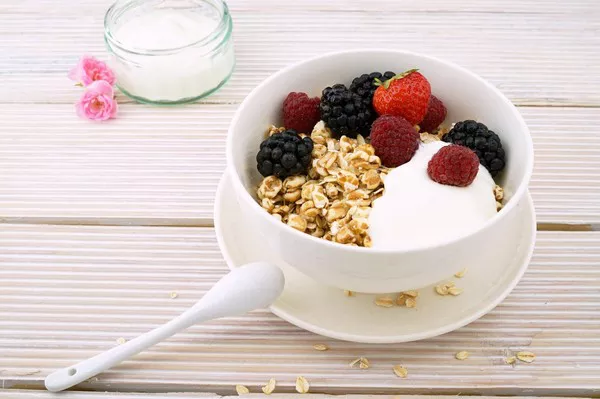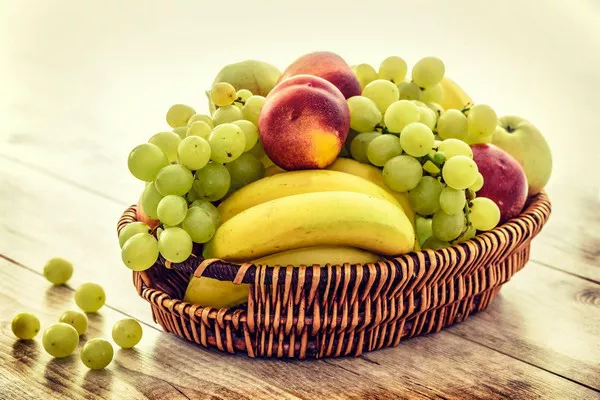Oats are a staple food for many, especially those seeking a wholesome and nutritious breakfast option. With the growing interest in health and fitness, people often wonder if oats are high in protein. Protein plays a vital role in building and repairing tissues, supporting immune function, and maintaining overall health. In this article, we will delve into the nutritional composition of oats, explore their protein content, and offer some effective ways to have oats.
1. Nutritional Composition in Oats
Before we delve into the protein content of oats, it’s essential to have a comprehensive understanding of their nutritional profile. Oats are a whole-grain cereal rich in carbohydrates, fiber, vitamins, and minerals. They are a notable source of complex carbohydrates, particularly beta-glucans, which have been associated with various health benefits, including reduced cholesterol levels.
2. Protein Content in Oats
While oats are not as protein-dense as animal-based sources or legumes, they do contain a notable amount of protein. On average, a half-cup (dry) serving of oats provides around 6 grams of protein. Compared to other grains, oats fare quite well in terms of protein content. However, it’s important to keep in mind that individual protein needs vary based on factors like age, activity level, and overall health.
Amino Acid Profile of Oats
Proteins are composed of amino acids, which are often referred to as the building blocks of life. There are nine essential amino acids that the body cannot produce on its own and must be obtained from the diet. While animal-based proteins generally contain all nine essential amino acids, plant-based sources like oats may lack some amino acids, particularly lysine.
Oats vs. Other Grains in Protein Content
Oats stand out when compared to many other grains in terms of protein content. While rice and corn have lower protein levels, quinoa and amaranth are examples of grains with higher protein content than oats. However, it’s essential to consider the overall nutritional profile when comparing grains. Oats bring a wealth of vitamins, minerals, and dietary fiber to the table, making them an excellent choice for a balanced diet.
Protein-Fortified Oats
In response to the growing demand for higher protein content in plant-based foods, some manufacturers have introduced protein-fortified oats. These products typically contain added protein from sources like pea protein or soy protein isolate. While protein-fortified oats can be a convenient way to boost protein intake, consumers should be mindful of the overall ingredient list, as some fortified options may contain added sugars or artificial additives.
SEE ALSO: Is Too Much Protein Bad for You? Everything You Need to Know
3. Oats with Satiety and Weight Management
The protein content in oats contributes to satiety and weight management through various mechanisms. While oats are not exceptionally high in protein compared to some other foods, their unique combination of nutrients, including protein, fiber, and carbohydrates, plays a crucial role in promoting feelings of fullness and supporting weight management. Here’s how the protein in oats contributes to these aspects:
Satiety and Fullness
Protein is known to be more satiating than carbohydrates or fats. When you consume protein-rich foods like oats, they trigger the release of hormones that signal your brain that you’re full and satisfied. One of the key hormones involved in this process is peptide YY (PYY), which is released in response to protein consumption and helps reduce appetite.
Slow Digestion
Oats are a complex carbohydrate, and when combined with protein, they contribute to slower digestion. Unlike simple carbohydrates that lead to rapid spikes in blood sugar levels, the combination of protein and complex carbohydrates in oats helps provide a steady and sustained release of energy. This gradual release of energy can help stabilize blood sugar levels and prevent sudden hunger pangs and cravings, promoting better appetite control.
Thermic Effect of Food (TEF)
Protein has a higher thermic effect compared to fats and carbohydrates, meaning that the body expends more energy (calories) to digest and process protein-rich foods. This increase in energy expenditure due to TEF can contribute to overall calorie expenditure and potentially aid in weight management.
Muscle Preservation
When trying to lose weight, a concern is often losing muscle mass along with fat. Adequate protein intake, including that from oats, can help preserve lean muscle mass during weight loss efforts. Preserving muscle mass is essential because it helps maintain metabolic rate and supports overall body composition.
Fiber Content
Oats are a rich source of dietary fiber, particularly beta-glucans. Fiber also contributes to feelings of fullness and can slow down the emptying of the stomach, further extending the duration of satiety after consuming oats.
Low-Calorie Density
Oats are relatively low in calorie density, meaning they provide fewer calories per gram compared to many processed and high-calorie foods. This characteristic makes oats a filling food choice without contributing excessive calories, making them a valuable addition to weight management diets.
Reduced Snacking
Including oats in meals, particularly breakfast, has been associated with a reduced tendency to snack or overeat later in the day. The satiating effects of oats can lead to a more controlled appetite, resulting in decreased snacking on unhealthy, calorie-dense foods.
4. Potential Drawbacks to Relying Primarily on Oats for Protein Intake
While oats are a nutritious food and can be a valuable part of a balanced diet, there are some potential drawbacks to relying primarily on oats for protein intake:
Protein Quantity
Oats are not a high-protein food compared to animal-based sources or some other plant-based options like legumes, tofu, or quinoa. Depending solely on oats for protein may lead to inadequate protein intake, especially for individuals with higher protein needs, such as athletes, bodybuilders, or people with certain medical conditions.
Amino Acid Profile
Oats are considered an incomplete protein source as they lack some essential amino acids, particularly lysine. While they do contain other amino acids, relying solely on oats for protein may not provide the full range of amino acids necessary for various bodily functions.
Nutrient Imbalance
Depending predominantly on oats for protein may result in an imbalance of other essential nutrients. While oats are rich in carbohydrates and dietary fiber, they may not provide sufficient amounts of other essential nutrients like certain vitamins (e.g., vitamin B12) and minerals (e.g., iron, zinc), which are commonly found in protein-rich animal sources.
High Carbohydrate Content
Oats are relatively high in carbohydrates, which can be a concern for individuals following low-carb or ketogenic diets or those with specific health conditions like diabetes. Relying heavily on oats without considering other protein sources might lead to an unbalanced macronutrient intake.
Anti-Nutrients
Oats, like many plant-based foods, contain certain anti-nutrients such as phytic acid, which can interfere with the absorption of essential minerals like iron, zinc, and calcium. While soaking or cooking oats can help reduce the anti-nutrient content, excessive reliance on them may still impact mineral absorption.
Dietary Monotony
Depending solely on oats for protein can lead to dietary monotony, which may cause individuals to miss out on the diverse array of nutrients found in a varied diet. A varied diet ensures that all nutritional needs are met and reduces the risk of deficiencies.
5. Combine Oats with Other Protein Sources
Combining oats with other protein sources can indeed enhance the overall protein content of a meal. By combining oats with complementary protein sources, you can create a more balanced amino acid profile, making the meal more nutritious and providing a wider range of essential amino acids.
Here are some examples of how you can combine oats with other protein sources to boost the protein content of your meal:
Greek Yogurt with Oats
Mixing oats with Greek yogurt creates a delicious and protein-rich meal. Greek yogurt is a high-quality protein source that complements the amino acid profile of oats, enhancing the overall protein content of the meal.
Nut Butter or Nuts with Oats
Adding nut butter, such as almond butter or peanut butter, to oatmeal increases the protein content and provides healthy fats as well. Alternatively, topping your oats with chopped nuts like almonds, walnuts, or pistachios adds extra protein, texture, and flavor.
Seeds with Oats
Seeds like chia seeds, flaxseeds, and hemp seeds are not only rich in protein but also provide essential omega-3 fatty acids. Sprinkling these seeds over your oatmeal adds protein, fiber, and other beneficial nutrients.
Plant-Based Milk with Oats
Cooking oats with plant-based milk, such as almond milk, soy milk, or oat milk, increases the protein content of your oatmeal compared to using water. These milk alternatives provide a source of protein and can make your oats creamier and more flavorful.
Protein Powder with Oats
If you’re looking for a quick and convenient way to boost the protein content of your oatmeal, you can add a scoop of protein powder. Choose a high-quality protein powder that aligns with your dietary preferences, such as whey protein, pea protein, or soy protein.
Cottage Cheese or Ricotta with Oats
Combining oats with cottage cheese or ricotta cheese provides an additional protein boost and a creamy texture to your meal.
SEE ALSO: Powering Up Your Morning: Protein-Packed Breakfast Options
Conclusion
In conclusion, while oats are not classified as a high-protein food, they do contain a reasonable amount of protein along with a wealth of other nutrients that contribute to a well-balanced diet. For those seeking to increase protein intake, complementing oats with other protein-rich plant-based foods can help optimize the amino acid profile. Oats can play a valuable role in weight management, muscle building, and supporting active lifestyles when incorporated into a balanced diet tailored to individual nutritional needs.
As with any dietary choices, it’s important to consult with a registered dietitian or healthcare professional to create a personalized nutrition plan that aligns with individual goals and health requirements. With oats’ versatility and health benefits, they undoubtedly deserve a place on the table of anyone looking to maintain a nutritious and wholesome diet.
[inline_related_posts title=”Related Topics” title_align=”left” style=”list” number=”3″ align=”none” ids=”1057,1029,1060″ by=”categories” orderby=”rand” order=”DESC” hide_thumb=”no” thumb_right=”no” views=”no” date=”yes” grid_columns=”1″ post_type=”” tax=””]


































